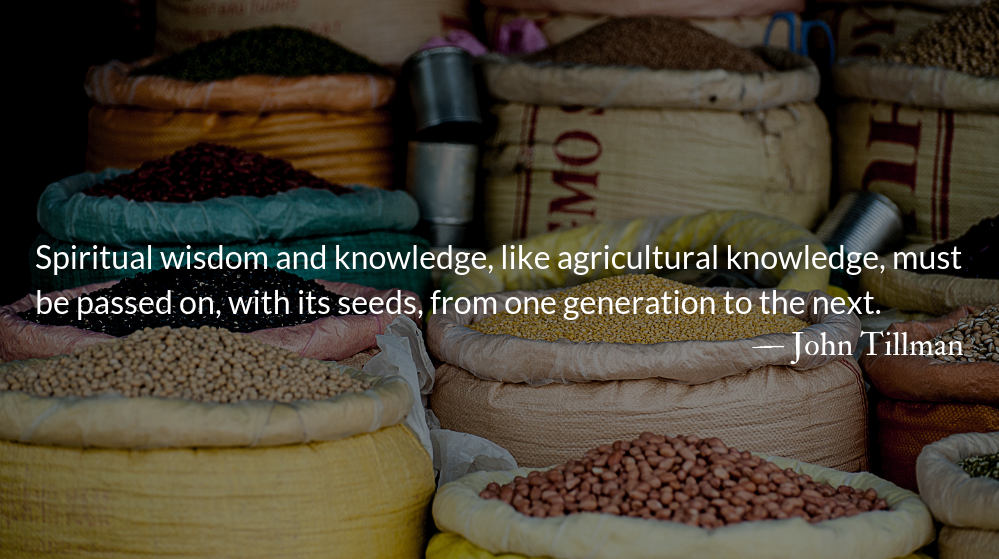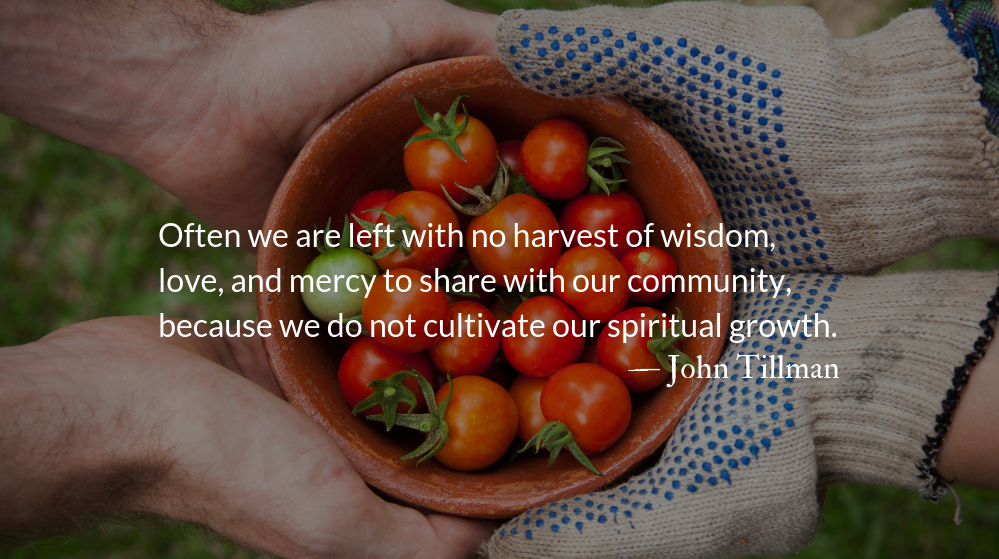Matthew 14.16
Jesus replied, “They do not need to go away. You give them something to eat.”
Reflection: Cultivation Must Be Learned
By John Tillman
Cultivation requires intergenerational transfer.
The first training schools for ministers in the church were communities called, in Latin, seminarium, meaning “plant nursery” or “seed plot.” The root word (we just can’t escape agricultural metaphor) also gives us the word semen, the literal “seed” of humanity; seminal, implying an original source of thought or work; and, seminar, a focused time of learning.
Spiritual wisdom and knowledge, like agricultural knowledge, must be passed on, with its seeds, from one generation to the next.
I learned to shell purple-hulled peas (a more flavorful cousin to black-eyed peas) because I sat on a porch with my family and shared in the work before sharing in the meal. Many of us learn agricultural knowledge from a loved one. We learn to tell a fruit or vegetable is ripe, how and when to prune roses, how to properly root a cutting of a plant, or at what depth to set bulbs in order to have blooms at the proper time.
In individual, cultural, or generational isolation, we lose the ability to transfer or receive knowledge. And in one-way relationships, there is no ability to contextualize knowledge, to discuss it, or to practice together how to live it out. This is why one of the most rewarding parts of The Park Forum is when I hear from readers, and discuss what has challenged or encouraged them.
There are limits to the level of community that is possible for a geographically distributed ministry like The Park Forum. Distributed communities, like long-distance relationships, require energy and investment to maintain. It is our hope that The Park Forum is a community tool, a seed bed, a source of cuttings that can be planted and rooted in your community.
More of us need to sit around biblical teaching, like my family sat around a bucket of unshelled peas, extracting the value from the harvest together, one pod at a time. When we share in the work of extracting the goodness of the land, we gain more than a harvest of nutritional content, or monetary gain. We gain community.
Who is your community? With whom are you processing God’s Word? Who are the believers, older in the faith, from whom you are learning? Who are the believers, younger in the faith, with whom you are sharing what you have learned?
Prayer: The Call to Prayer
Sing to the Lord and bless his Name; proclaim the good news of his salvation from day to day. Declare his glory among the nations and his wonders among all peoples. — Psalm 96.2-3
– Prayer from The Divine Hours: Prayers for Autumn and Wintertime by Phyllis Tickle.
Prayers from The Divine Hours available online and in print.
Today’s Readings
Genesis 15 (Listen – 2:53)
Matthew 14 (Listen – 4:14)
Join Us:
Are you interested in joining an online community to share with The Park Forum readers? Email us at: info@theparkforum.org
Read more about Where Wisdom Is Found :: A Guided Prayer
Human wisdom can only take us as far as human understanding, which even the greatest of scientists would admit continually finds more questions than it answers.
Read more about The Root of Wisdom
The writers of Scripture believed integrative wisdom could come only through prayer.









